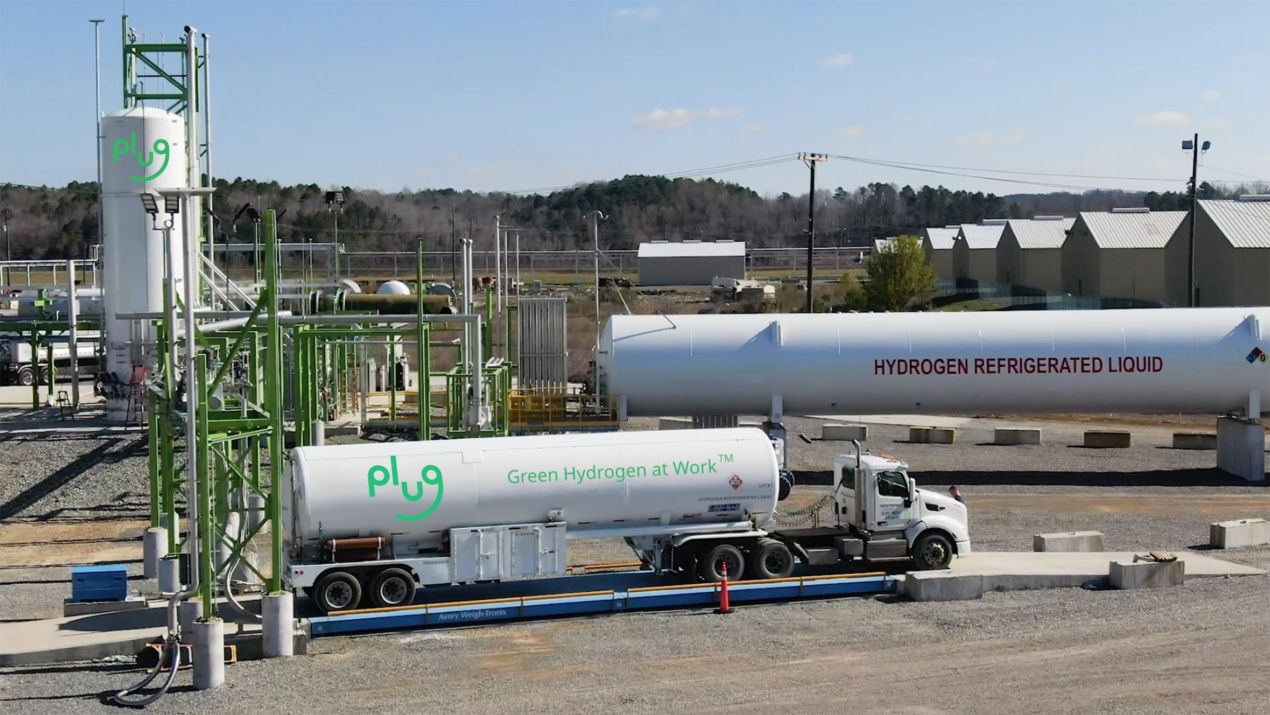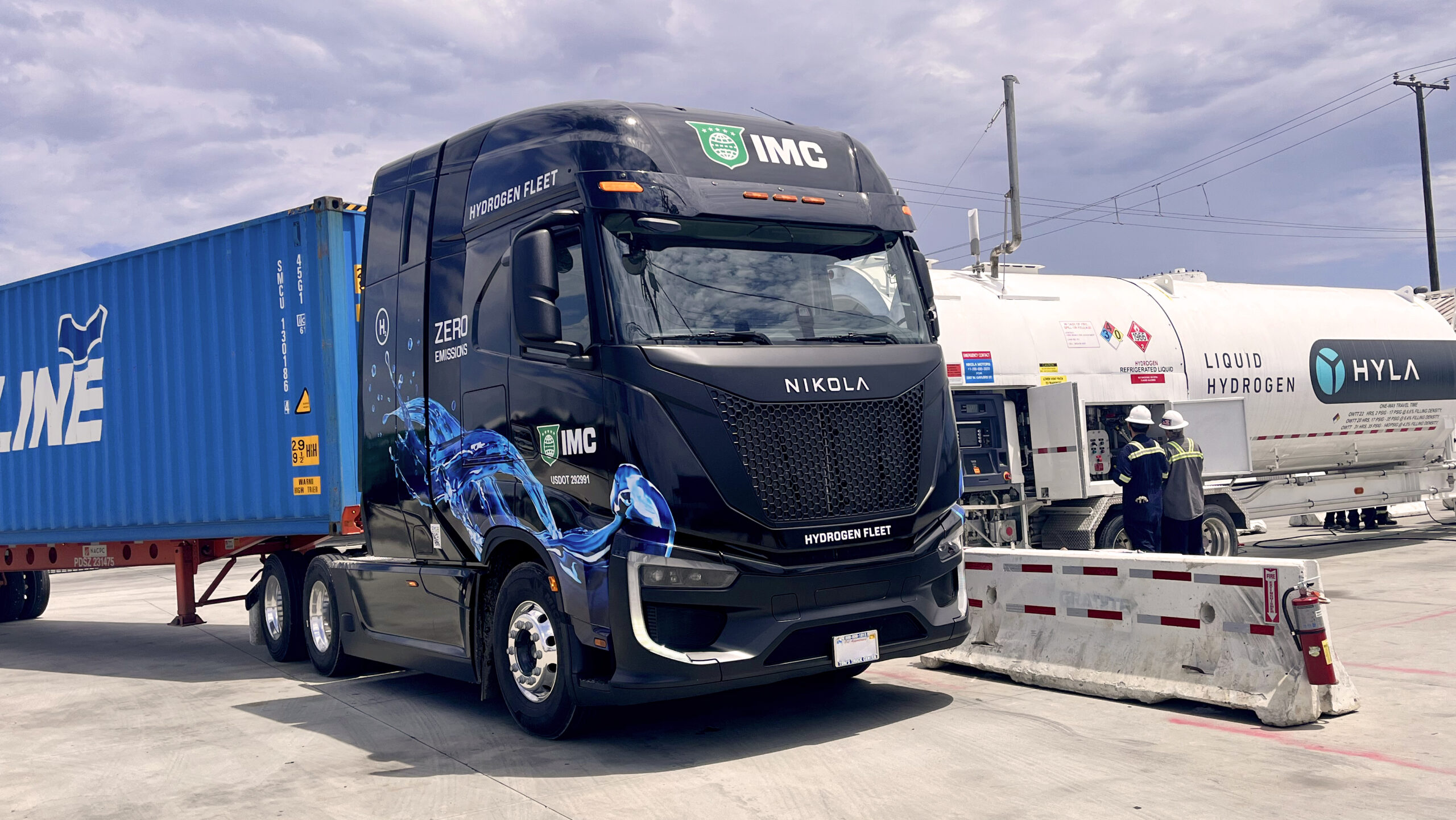
A Transformative Year for Hydrogen: Key Companies Driving Innovation in 2024
Published by Todd Bush on January 1, 2025
As 2024 comes to a close, the hydrogen industry reflects on a year defined by groundbreaking innovations, significant investments, and formidable challenges.
This year has seen governments and private sectors worldwide prioritize hydrogen as a cornerstone of the global energy transition, demonstrating its potential in transportation, industrial processes, and energy generation.
However, the journey has also been marked by hurdles, emphasizing the need for resilient strategies moving forward.

Major Investments Drive Progress
1. United States Leads the Way
In the United States, government and private sector funding has laid a robust foundation for hydrogen innovation.
Plug Power secured a monumental $1.66 billion loan from the Department of Energy to accelerate its green hydrogen production projects.
This funding is expected to fuel its expansion plans, ensuring the availability of renewable hydrogen for various industrial applications.
The Appalachian Regional Clean Hydrogen Hub (ARCH2) received $925 million to boost clean hydrogen economies across multiple states.
This initiative not only focuses on environmental benefits but also prioritizes job creation, showcasing how clean energy can align with economic growth.
Additionally, $2.2 billion was allocated to two hydrogen hubs in the Gulf Coast and Midwest regions, further solidifying the country’s leadership in hydrogen infrastructure.
"This level of global commitment is an encouraging sign that hydrogen is finally being recognized as a viable energy solution," remarked John Smith, a leading industry analyst.
2. European Union’s Strategic Investments
The European Union has also made remarkable strides in hydrogen development.
Spain granted €150 million to Cobra Solutions for the Green Cobra project, which aims to establish a robust hydrogen supply chain and significantly reduce carbon emissions.
Germany, a key player in renewable energy, committed €4.6 billion to 23 hydrogen projects, emphasizing the importance of production, storage, and transportation infrastructure.
Among these, the Hy2Move project, backed by €1.4 billion, focuses on integrating hydrogen into clean transportation technologies. Companies like Airbus and BMW are pivotal contributors to this initiative.
Additionally, EnBW pledged €1 billion to enhance Germany’s hydrogen network by 2032, aligning with the country’s ambitious decarbonization goals.
These investments highlight Europe’s dedication to establishing hydrogen as a core component of its energy ecosystem.

>> In Other News: US to Issue Hydrogen Credit Rule This Week, With Path for Nuclear, Sources Say
Innovations in Hydrogen Applications
1. Transforming Transportation
The transportation sector has been a major focus for hydrogen innovation in 2024.
Nikola Corporation achieved a significant milestone by manufacturing its 300th hydrogen-powered truck in Arizona.
Despite initial challenges, the company plans to add 100–150 more vehicles to its fleet by year’s end, demonstrating its resilience and dedication to sustainable transportation.
Hyundai reported impressive progress with its Xcient hydrogen truck fleet in Switzerland.
These vehicles have collectively traveled over 10 million kilometers, preventing the release of more than 6,700 tons of CO2 emissions.
Similarly, HRS expanded its hydrogen refueling network in France, with seven new stations that include the high-capacity HRS40, paving the way for greater adoption of hydrogen-powered vehicles.
"Hydrogen is no longer a niche technology—it’s becoming mainstream in multiple sectors," stated Dr. Emily Carter, CEO of a leading hydrogen consultancy.
2. Revolutionizing Aviation and Maritime
In aviation, ZeroAvia secured a conditional agreement with American Airlines to purchase 100 hydrogen-electric engines.
This move represents a significant step toward achieving zero-emission regional flights.
Additionally, Joby Aviation conducted a landmark hydrogen-powered flight spanning 841 kilometers, proving that sustainable aviation is not just theoretical but practical and achievable.
Maritime projects have also showcased hydrogen’s versatility. Switch Maritime is advancing its liquid hydrogen-powered Sea Change ferry in the United States.
Meanwhile, China debuted its first hydrogen-powered cargo ship, capable of carrying 1,450 tons over a range of 380 kilometers, setting a precedent for future innovations in maritime transportation.
Challenges: Lessons from 2024
While 2024 has been a year of progress, it also revealed the financial vulnerabilities within the hydrogen sector.
Companies like TECO2030, Proton Motor Power Systems, and Hyvia faced significant financial and regulatory challenges, with some even filing for bankruptcy.
These setbacks highlight the urgent need for stable funding mechanisms and supportive regulatory frameworks to ensure the industry’s long-term growth.
Additionally, the high costs associated with hydrogen production and infrastructure remain a barrier to broader adoption.
Despite these obstacles, the challenges of 2024 have offered valuable lessons, underscoring the importance of collaboration and innovation to overcome industry-wide hurdles.
Looking Ahead: Hydrogen in 2025
The future of hydrogen looks brighter than ever, with several transformative developments expected in 2025:
1. Expanding Green Hydrogen Production
Countries like Australia, Saudi Arabia, and Chile are set to lead in renewable hydrogen production, with megaprojects that will significantly increase capacity.
These initiatives aim to reduce costs and make hydrogen more accessible to emerging markets.
2. Advancing Storage and Transportation
Technological advancements in hydrogen storage and transport are anticipated to improve the global supply chain.
Innovations in liquid hydrogen storage and compressed gas transportation will facilitate its integration into various industries.
3. Scaling Hydrogen Transport Fleets
Heavy transport sectors, including trucking, rail, and buses, are expected to see wider adoption of hydrogen-powered vehicles.
Building on the successful pilots of 2024, commercial deployments will expand across multiple continents.
4. Accelerating Refueling Infrastructure
Regions such as Europe, Asia, and North America will continue to expand their hydrogen refueling infrastructure.
This will support the growing number of hydrogen-powered vehicles and facilitate the transition to zero-emission mobility.
5. Strengthening Global Collaboration
Organizations like the Hydrogen Council will play a vital role in fostering international partnerships.
These collaborations will drive innovation, standardization, and the commercialization of hydrogen technologies.
A Transformative Future for Hydrogen
The achievements of 2024 have positioned hydrogen as a cornerstone of the global energy transition.
Despite the challenges faced this year, the commitment to sustainability and innovation remains steadfast.
As governments and industries strengthen their climate initiatives, hydrogen is set to play an even more pivotal role in shaping a cleaner, more sustainable future.
With a solid foundation built in 2024, the hydrogen industry is poised for a year of unprecedented growth and collaboration in 2025.
Subscribe to the newsletter
Daily decarbonization data and news delivered to your inbox
Follow the money flow of climate, technology, and energy investments to uncover new opportunities and jobs.
Latest issues
-
$47M Just Poured Into This SAF Producer
Inside This Issue 💰 LanzaJet Announces $47M in New Capital and First Close of Equity Round at $650M Pre-Money Valuation 🚢 Maersk's Ethanol Bet Could Reshape U.S. Fuel Markets 🪨 Canada Nickel and t...
-
Kita's $29M Bet Signals Carbon Insurance Is Here
Inside This Issue 🛡️ Kita's $29M Bet Signals Carbon Insurance Is Here 🏗️ CCI BioEnergy Selects Arcadis As Design-Engineer Partner Under Master Service Agreement 🤝 Tapestry and Climeworks Announce ...
-
Cummins Quit Electrolyzers. Electric Hydrogen Didn't.
Inside This Issue ⚡ Cummins Quit Electrolyzers. Electric Hydrogen Didn't. 🧪 New Electrified Method Captures Carbon Dioxide From Air 🌾 Iowa Could Be on the Cusp of a Hydrogen Rush; Lawmakers Weigh ...
Company Announcements
-
HOUSTON and OXFORD, England/PRNewswire/ -- Velocys today announced that it has implemented manufacturing and delivery efficiencies that reduce total investment cost for its microFTL™ technology by ...
-
Agreement signals ongoing growth of Sustainable Aviation Fuel market GREAT FALLS, Mont. and BOSTON, Feb. 19, 2026 /PRNewswire/ -- Montana Renewables, LLC (MRL) and World Energy Clean Fuels LLC (Wo...
-
BASF Launches Circalo: Low Carbon Intensity Crops To Help Ethanol Producers Capture Value Under 45Z
RESEARCH TRIANGLE PARK, NC, February 19, 2026 – BASF has introduced Circalo™: Low Carbon Intensity Crops, a comprehensive, unified platform designed to connect farmers, agronomists and ethanol prod...
-
International Airlines Group (IAG), Shell, Groupe ADP, LanzaTech, and Mitsui make additional investments to support LanzaJet's growth and commercial deployment of its proprietary Alcohol-to-Jet (AT...